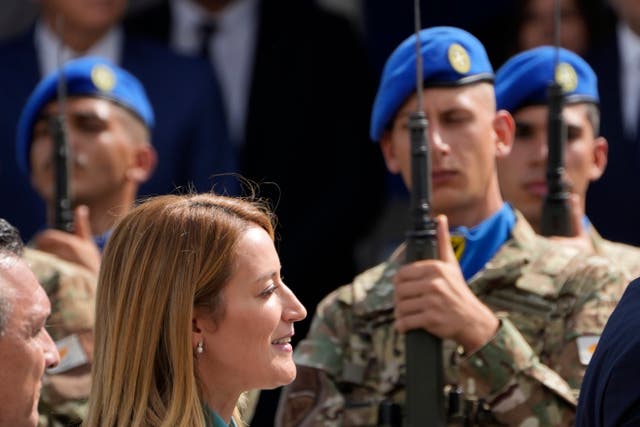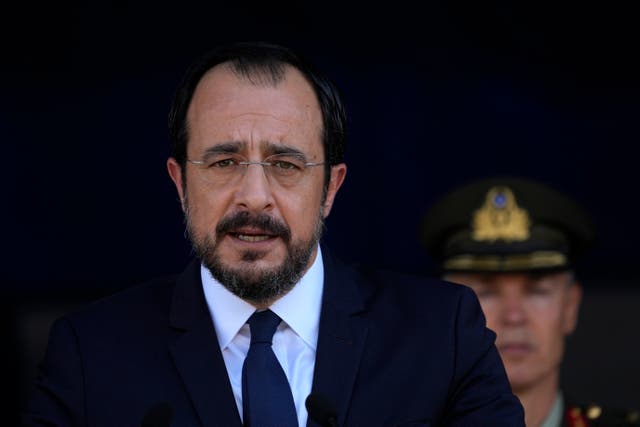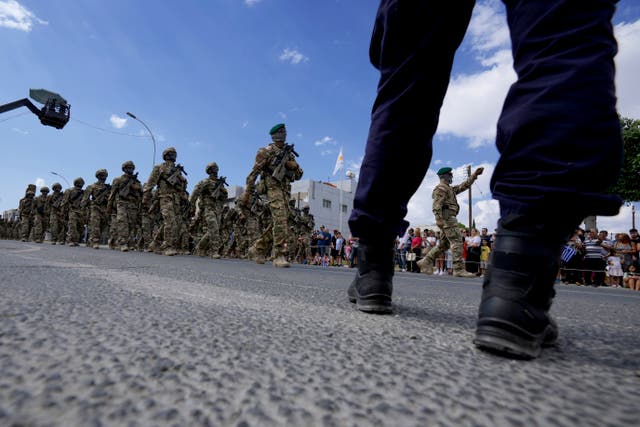The president of the European Parliament has said she has conveyed the legislative body’s support for the appointment of a United Nations envoy to evaluate the chances of resuming talks to reunify ethnically divided Cyprus.
Roberta Metsola said she personally communicated the position of the European Union’s legislature to UN Secretary-General Antonio Guterres in New York last month.
Ms Metsola said she told Mr Guterres that Europe “would never be complete as long as Cyprus remains divided”.

“This is not just a Cyprus question, but it is a European question,” she said after talks with the island nation’s President Nikos Christodoulides.
Ms Metsola also attended a military parade on Sunday to mark the 63rd anniversary of Cyprus’ independence from British colonial rule.
Mr Christodoulides told reporters on Sunday that consultations continued on the appointment of a UN envoy. He has made resuming reunification talks with breakaway Turkish Cypriots a focal point of his Greek Cypriot administration.
The talks have been in a deep freeze since the last attempt at a peace deal ended in the summer of 2017.

Prior to that, numerous rounds of UN-facilitated negotiations had also ended in failure.
Reunification efforts began in the years immediately following a 1974 Turkish invasion that was precipitated by a coup aimed at union with Greece.
UN peacekeepers maintain a buffer zone between the Turkish Cypriot northern third of the island and the Greek Cypriot south.
Turkey, the only nation that recognises a Turkish Cypriot declaration of independence, keeps more than 35,000 troops in northern Cyprus.

Cyprus joined the EU in 2004, but only the southern part, where the internationally recognised government is seated, enjoys full membership benefits.
The island’s division has been a regular source of tensions in the eastern Mediterranean, particularly over Turkey’s claim to much of Cyprus’ offshore economic zone, where sizeable gas deposits have been discovered.
Turkish Cypriot leader Ersin Tatar has said there can be no real peace accord unless statehood for the minority Turkish Cypriots is recognised. His position departs from a long-standing agreement that Cyprus would be reunified as a federation composed of Turkish and Greek-speaking zones.
Mr Tatar said he told Mr Guterres that any UN envoy could not assist negotiations that would be based on the now invalid premise of a federation and that a settlement could only happen through negotiations between two equal states.
